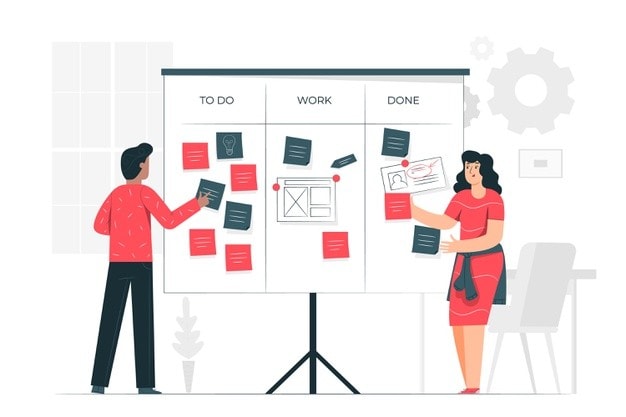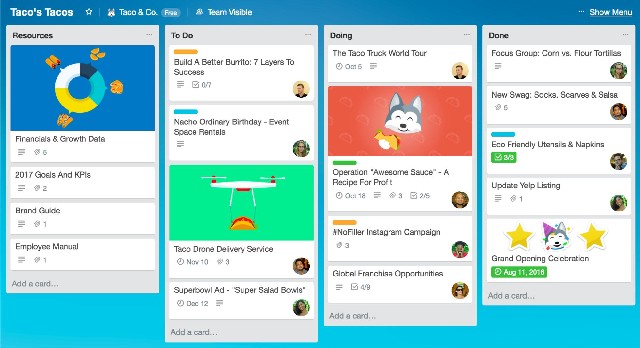
What is Time Management? Types, Importance, and Tools

Mastering time management is key to achieving success From prioritizing tasks to using efficient tools, it involves planning and organizing to maximize productivity and minimize stress Embracing time management can help you gain self-confidence, avoid costly mistakes, and improve your reputation
Time management involves planning and organizing the time spent on specific tasks to increase productivity and efficiency. It requires utilizing various tools, skills, techniques, and methods to meet project deadlines and achieve set goals.
What is time management?
Proper time management involves setting and prioritizing goals, determining the amount of time to allocate to each activity, regularly reassessing goals and priorities, making necessary adjustments, and evaluating the outcomes of your efforts. However, mastering the art of time management is not as simple as it may seem. It requires careful planning, effective tools, and strategic implementation in order to achieve success. Those who make a conscious effort to implement this concept are headed in the right direction towards achieving their objectives.
Process of Managing Time
The time management process takes the help of various skills and strategies to manage time most effectually. Some of them are as follows-
1. Start the day with a clear focus
Plan your day ahead by identifying the tasks that need to be completed. Clarify your thoughts and purpose, then check and respond to important emails and messages. Taking a few minutes in the morning to set goals is crucial for effective time management and can save you several hours by the end of the day.
2. Use a planner
To ensure effective time management, it is essential to have a system in place to keep track of tasks. One recommended method is to use a time planner, where all important activities can be noted down and scheduled accordingly. However, if a planner is not available, creating a to-do list can also be an effective way to keep track of tasks and prioritize them based on their importance.
Update your to-do list frequently throughout the day to ensure that important tasks are prioritized. Set regular intervals to review your progress and determine which tasks have been completed and which ones still need attention. Remember to keep
3. Organizing
handy for future reference.Staying organized will help to maintain a clear picture of the tasks that need to be done. This will help in knowing what to do and when.
4. Prioritizing
A good time management policy requires prioritizing of work and responsibilities to accomplish the set long-term and short-term goals
5. Focus on high-value activities
Begin by prioritizing the most crucial activity and avoid the temptation to tackle insignificant tasks on the list first, as they will only waste your time. Use this opportunity to identify tasks that will have the greatest impact on your project, work, and personal growth, so that you can effectively manage your time.
6. Reduce redundancies
It is crucial to eliminate redundant tasks and non-essential processes in order to establish an efficient time management strategy. By avoiding unnecessary responsibilities, individuals can focus on completing high-priority tasks and achieving their goals.
7. Communication
Develop an open and robust communication channel that can help to make your goals, objectives and plans clear.
8. Delegation
9. Keep the interruptions away
Effective planning and delegation are key factors in achieving success within a limited timeframe. A skilled manager understands the importance of empowering their team and entrusting important tasks to capable subordinates, allowing them to focus on other pressing matters.
Avoiding interruptions is crucial for maximizing productivity. Interruptions not only increase the time needed to complete an activity, but also make it difficult to regain focus. To make the most of your day, identify which activities tend to cause disruptions and minimize your exposure to them. By maintaining uninterrupted focus, you can achieve vital tasks efficiently and effectively.
10. Do not drag your feet
To overcome the habit of procrastination, it is crucial to establish timelines for all your important tasks. Maintaining focus is key to effective time management, and it is important to avoid dragging your feet and instead prioritize completing work within the designated timeframe.
Give yourself a small reward for your effort because this will act as a motivational tool for the next time
11. Keep your focus on one task
Frequently, people pride themselves on being able to multitask, however, this often leads to neglecting the most significant task. In the pursuit of completing numerous tasks, the task that could significantly impact the outcome is ignored.
To effectively manage time, it is crucial to concentrate on one task and abandon multitasking. Scheduling specific times for various activities throughout the day is a successful approach. After adapting to this method, it will become evident that working on one task at a time is more efficient than attempting to manage everything simultaneously.
12. Review your day
To improve your time management skills, take a few minutes at the end of each day to review your task list. Celebrate your accomplishments from the day and don't be discouraged if there were tasks left unfinished. Use this as motivation to tackle them the following day with renewed effort.
Here is a video byon Time Management.
Importance of time management
The importance of time management is as follows-
Time management helps in using time effectively
Time management helps in keeping things organized
Time management Assist in efficiency gains
Time management helps to plan and organize the work schedules
Time management assist in increasing efficiency and productivity
Time management develops a sense of responsibility
Time management leads to active learning
Time management maximizes accomplishments
Time management prepares individuals for the outside world
Time management helps to achieve specific tasks and activities
Time management helps to give every job enough time so that there is no pressure
Time management helps in proper coordination
Time management receives stress and anxiety
Reasons why you need time management
A person needs time management in life because
He is absentminded
Has the habit of procrastination
Is not comfortable in delegating
Is disorganized
Fails to prioritize work
Is reactive instead of proactive
Time management tools
Some time management software tools that can help you to manage time effectively are
SCORO
It helps in time management by managing tasks, work reporting, billing, and tracking time. Its top features are
Tracking billable and actual time
Transferring hours to the invoice
Reporting on budget and sales performances
Client and project management
ASANA
and assigning them to team members
Tracking the progress of each task
Setting deadlines and reminders for tasks
Collaborating with team members through comments and file sharing
Generating reports to analyze project performance
Overall, it streamlines project management and ensures efficient communication among team members.
Organizing the tasks into projects
Assigning specific responsibilities to particular team members
Checking the progress of the team
Reviewing milestones
Getting notifications about project updates
Get a quick review by using project dashboards
BILL4TIME
It is a cloud-based billing software that determines the profitability and productivity of a project. Its top features are-
Track non-billable and billable time
Client portal
Get work summaries on a daily, monthly and weekly basis
Online and invoicing payment options
Extensive reporting on projects
TRELLO
It is a visual method that helps teams in productive project collaborations. Its top features are
Simple task management
Creating tasks list
Organizing lists by priority or dates
File ad image sharing
Collaboration and commenting
CLARIZEN
It is a cloud-based software that provides configurable workflows and helps the business to move forward. Its top features are-
Unlimited projects
Social collaboration
Automated processes, workflows, and alerts
Expense management and budget tracking
TIMECAMP
It is an effective time management software that uses a time tracking facility to measure profitability. Its top features are
Desktop and mobile apps
Powerful reporting
Budgeting in both time and dollars
Integrated payment gateway
Automatic non-billable and billable time tracking
TOGGL
It is tracking software that acts as an add-on to the existing tools to become more productive. Its top features are
Unlimited projects and subprojects
Accurate offline and online time tracking
Reporting team progress
REPLICON
It is a useful tool that has multi-feature solutions. Its top features are
Timesheets
Time tracking
Analytics on time usage
Expense management and project budgeting
Multiple billing rates for different users
Advantages of time management
The advantages of time management are as follows-
1. Lower stress levels
When one effectively practices time management, they can develop a structured schedule and work accordingly to ensure that their tasks are completed within the designated timeframes. This not only leads to improved outcomes but also allows individuals to unwind and enjoy their professional and personal lives. Ultimately, the practice of time management can significantly reduce daily stress levels.
2. Get more work done
Effective time management is crucial for accomplishing more tasks within a given period. By establishing deadlines and meeting them, individuals can efficiently manage their workload and enhance productivity.
3. Minimize procrastination
The benefit of time management is that it enhances the ability to control situations and stop delays by minimizing the habit of procrastinating.
4. Less rework
Being efficient in time management leads to a significant benefit of reducing the need for rework. When a person is organized, there are fewer chances of making mistakes and forgetting tasks, which ultimately leads to no extra or duplicate work.
5. Achieve self-confidence
Time management is a crucial skill that enables individuals to plan their day effectively. By allocating time wisely, individuals can create a balance between work and personal life, allowing them to have some extra time for themselves. This not only leads to a better quality of life, but also boosts self-confidence and the ability to achieve goals through proper planning.
6. Fewer problems
Proper time management not only helps individuals to complete their work on time but also reduces stress levels. By prioritizing tasks and setting realistic goals, one can avoid the last-minute rush and deliver quality work.
7. Helps to maintain focus
Implementing effective time management skills is crucial in achieving a balanced and successful life. By managing stress and gaining a better perspective, individuals can focus on their goals and deadlines with clarity and dedication. Ultimately, a focused approach to time management is essential for achieving a fulfilling and productive life.
8. Less wasted time
Proper time management is key to finding free time in a busy schedule. By planning ahead, creating schedules, and sticking to them, individuals can avoid wasted time and prevent their minds from wandering. With a clear plan for the day and set timelines for completing tasks, it becomes easier to focus and achieve desired results.
9. More opportunities
Proper time management is a key component in achieving success. Arriving on schedule not only shows respect for others' time but also allows for a more productive and efficient day. With a well-planned schedule, individuals can focus on accomplishing tasks and seizing opportunities that may arise throughout the day.
10. Improves reputation
When a person or an organization starts following time management process, it enhances reputation in the market as people start considering him or the entity reliable
9. Find extra time
Managing one's time effectively allows for more opportunities to engage in personal interests and spend quality time with loved ones, ultimately leading to a more fulfilling and well-rounded life.
8. Delegate tasks
An essential advantage of time management is that it teaches an individual or a business entity to delegate tasks effectively
7. Identifying problems
Time management helps to track the progress so that it becomes easier to identify potential problems and address them on time
8. Maintain control
Time management gives a feeling of control over their work as a person, or an entity knows what and when to do certain things to achieve maximum benefits
9. Helps in avoiding costly mistakes
When time is managed effectively, one can avoid common mishaps such as forgetting to pay rent, missing school fees for children, or failing to meet housing deadlines. This results in saving money by avoiding costly and avoidable expenses.
10. Financial strength
Time management helps in planning every aspect of life in both the personal and professional front. This promotes success and brings financial success
11. Becomes healthy
Time management not only helps individuals to make the most out of their day but also enables them to prioritize their health and well-being. By allocating time for activities like meditation and exercise, one can not only become mentally and physically fit but also have the necessary time to relax and rejuvenate.
Disadvantages of time management
The disadvantages of time management are as follows-
1. Routine work
The employees lose motivation because their work becomes routine and starts feeling boring
2. Complacency
Everyone is confident of achieving set targets, and this gives rise to complacency
3. Meaningless work
There seems to be a growing trend towards being overly structured and adhering to strict schedules, leaving little room for creativity and spontaneity. As a result, the workplace can become monotonous and uninspiring due to the absence of fresh ideas.
4. Wasted time
Employees often become so focused on following their routine schedule that they may not realize when a task is no longer a high priority or when it could be better delegated to another team member. This can result in wasted time and resources that could have been better utilized elsewhere.
5. No time to rest
People who prioritize time management often fall into the trap of spending too much time on planning and scheduling, leaving little room for relaxation and enjoyment.
6. Fatigue
Planning and scheduling one's day can become overwhelming and lead to negative impacts on one's health. Consistent stress and fatigue can become a hindrance to effective time management, ultimately causing more harm than good.
7. Cannot say no
In the pursuit of adhering to a strict schedule, it can be difficult to decline or adjust plans, even when unexpected important tasks arise. These scenarios can lead to frustration when essential commitments are missed due to an inflexible schedule.
8. No flexibility
You have set schedules in the time management process, and it leaves very little or no room for flexibility.
9. Disruptions
People who have mastered the art of time management in both their personal and professional lives tend to avoid engaging in unproductive activities. They have a strong aversion to wasting precious time, which can sometimes lead to disagreements and conflicts with individuals who have a more relaxed attitude towards time.
10. Result in dissatisfaction
After some time, the process of time management starts interfering with personal appointments and plans that are made instantly. People feel pressurized and this causes dissatisfaction
















